0 Comments on Book Review: Fair Weather by Richard Peck as of 1/1/1900
Looking Back on CWIM: The 1998 Edition
In which I Interview Judy Blume and edit Richard Peck...
There were some intimidating moments as I worked on the 1998 CWIM. First Richard Peck agreed to write a feature for me Looking at YA Past & Present (which he composed on a typewriter just as he did his novels) and I went through revisions with him. It was my fifth edition of CWIM, I was still in my twenties, and I feeling a little like a baby editor.
But that was nothing compared to interviewing the woman who arguably had more influence on my childhood than anyone else: Judy Blume.
I met Judy at an SCBWI conference autograph party to which I arrived ridiculously early so I could be at the front of her line. As I said in my article intro, after she told me she was open to doing an interview, "I ran up to my hotel room and called my husband, my mom, my sister and a few of my girlfriends to tell them I talked to Judy Blume and somehow managed not to wet my pants." (After the book came out and Judy got her copy, she sent me a letter thanking me for the interview. It said "I'm so glad you didn't wet your pants," which she underlined in the purple pen she used to sign her name. I framed the letter and hung it next to my bookcase.)
Here is part of our conversation from the 1998 CWIM in which we talked about teen sex, birth control, my chubby childhood, and masturbation, among other things:
 What's your advice for writer who are tackling [controversial subjects]?
For me the best thing is to not even know there's a problem, and to write from the place deep inside, where you're not thinking about anything but telling the best story you can tell. And if it becomes an issue, deal with it afterwards. One of the great fears, with this climate of censorship we have today, is that writers will censor themselves and the losers will be the kids. Writers are hungry. They want to be published. If they think they can't be published by writing about something, then maybe they won't write about it.
The '70s was a very writer- and kid-friendly time because there was less fear in the marketplace and more concern about publishing the best books and getting them to the kids, books kids could really relate to. All publishing has changed drastically in the last couple of years. The whole marketplace--everything has changed. That's a topic I'm probably not even qualified to talk about, but it's become much more like the movie business--it's driven by the bottom line. It's all economics, the way things are marketed now. So if you just look at children's publishing--has it changed? Yes. Is there more fear now in publishing? I don't know. There was, but maybe now people are sick of pandering to the censors.
If you would have begun writing in, say, 1995 instead of the late '60s, do you think it would have been more difficult for you to get your work published?
Back from the delights and inspirations of Bologna. The books, the events, the meetings, the socialising, the food... where to begin?
Yes, Bologna was good this year, skedaddling away to Italy was a tonic to my work and outlook, a week of frenetic activity in a city and Book Fair that never ceases to inspire and encourage. Publishers seemed quietly optimistic compared to the gloom of last year, I sensed a real tone of confidence in the air from all around. For me Bologna was good before it even began, over these last weeks the approaching Fair was a deadline to focus my energies, hone my stories and produce some new book dummies.
This was my third visit to Bologna (the last time was in 2008), now as then SCBWI ran a biennial Conference/Symposium and had a Stand throughout the book fair. As one of SCBWI's volunteer "Team Bologna" the pace was hectic from the moment I arrived in the city.
First up was the SCBWI Conference on Monday. SCBWI Chairman Steve Mooser started proceedings with Why We're Here, a summing up of the Society, it's aims and goals, unfortunately co-chair Lin Oliver was recovering from illness and unable to make the trip from the US.
 My good friend Leonard Marcus gave the first talk, Who Takes the Prize? a fascinating discourse on English language children's book awards, including the Newbery, Caldecott, Smarties, Greenaway, NBA and regional prizes. Leonard, apart from being an incredibly gifted writer and critic, has a marvellous ability to draw the audience towards him, his warm softly spoken voice makes you feel you're sharing an intimate conversation rather than sitting several feet away in a hall full of people. In Taking the Mystery out of Movie Deals, Fiona Kenshole of US based production company LAIKA explained the processes involved in developing books for film adaptations, focusing especially on her own work on the animated stop-motion film of Neil Gaiman's Coraline. Seeing the amount of work involved in the production process was simply breathtaking, I'd assumed there had been a lot of computer graphics involved in the film - apparently virtually none, it was all stop-motion modelling on enormous sets. Thereafter the attendees were split into events for writers and illustrators. I'd met writer Ellen Hopkins some years ago in Los Angeles and was disappointed to miss her workshop. However the illustrator's workshop Books without Borders was excellent. Frané Lessac is a widely travelled American illustrator now living in Australia. Working in a naive style perfectly suited to folktales. She explained how her many books h
 A Season of Gifts by Richard Peck A Season of Gifts by Richard Peck
My rating: 5 of 5 stars
I am so glad Grandma Dowdel has returned! And this is a whole new story. A new family (Grandma's new neighbors) have moved in and Grandma Dowdel helps them in her own special way. ;) I absolutely love Richard Peck's humor and character development. This book is a follow up book to A Long Way From Chicago and A Year Down Yonder, but you do not need to read the first two to enjoy this story. However, if you want a little background in the development of Grandma Dowdel, you will not want to miss the first two books. I recommend this book to 6th, 7th, and 8th graders. Although some of fifth graders in my class get into reading the other two books, I think the vocabulary of this book makes it more appropriate for 6th grade. But I would surely start them off with the series in fifth grade. I especially like the version on tape I have borrowed from the library.
View all my reviews >>
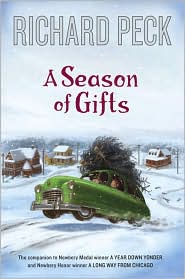
Peck, Richard. 2009. A Season of Gifts.
I really wanted to love this one. I mean really wanted to. You see, I love Richard Peck. A Teacher's Funeral. Here Lies the Librarian. On the Wings of Heroes. Long Way From Chicago. Year Down Yonder. (I can't believe I never blogged about Here Lies the Librarian.) And besides that I love Grandma Dowdel. So I had high hopes and big expectations. Perhaps, my hopes were too high.
So I didn't love it, but I didn't hate it. What is it about? It's about a new family who has come to town. A preacher, his wife, and their three children. An older daughter, Phyllis. A younger daughter, Ruth Ann. And the middle child, a son, our narrator, Bob. It covers a little under half a year--from August to December. It focuses on this family's growing pains as they adjust to a new town, a new community. It's historical fiction. Set in the late 1950s. There's talk of Elvis joining the army and being shipped out, talk of the Russian threat and the potential for Russian spies, and then there's the bit more controversial talk of Indians. (I'll get into that in a bit.) This family lives next door to the ever-cranky Mrs. Dowdel. A strange woman, an old woman, a character who says and does whatever she wants whenever she wants. (You don't have to have one of those in your family to know that that can be a bad thing at times.) How much is the book about Mrs. Dowdel? How much is the book about growing up in a small town? It's a nice blend of the two. Mrs. Dowdel adds some flavor to the story--both sour and sweet, and now that I think about it, a little salt too. But this story isn't only about a family growing up with a strange and sometimes scary neighbor. It's about growing up. It's about family and friends. It's about bullies. It's about life--the good, the bad, the ugly. It's not about sugar-coating the past. Making it into something it's not. But there is a nostalgic feel to it.
I liked this one. But there were a few chapters I loved. For example, the "E'er the Winter Storms Begin" section, the final section, was just great. What I expected from the whole book really. We've got Mrs. Dowdel at her finest. Behaving like you'd expect. You get to see the community as a whole. And it had its moments. Sweet and tender. Yet raw and bittersweet in a way. Life wasn't ever presented as being perfect.
Yet even though this one felt right in some places, it felt wrong in others. I didn't really feel as connected as I'd hoped to the characters. Is that my fault as a reader? Maybe. I just didn't feel we got beneath the surface of some of these. Is that to be expected? How many twelve-year-old brothers can really, truly know their sisters and do them justice in the narration? Maybe my disconnect with Phyllis was because Phyllis was disconnecting from her family. So maybe this is intentional. Phyllis was having growing pains of her own, and her story isn't this story. I think the truth of the matter is that part of me almost wishes the story was told from another perspective. Or from multiple perspectives. I found Ruth Ann interesting. And I wouldn't have minded the story from Phyllis' perspective.
S
P
O
I
L
E
R
I mentioned the controversy over this one. The two articles over at SLJ. A Season of Gifts...Don't Throw the Popcorn, and The Grinch Who Stole Christmas. (Thanks goes to Roger for pointing these out. He also wrote about the potential for offense here.)
Here are the facts. In chapters six, seven, and eight...(titled "The Haunted Melon Patch," "Fuss and Feathers," and "Indian Summer"). We've got some story lines that could give offense to readers. They involve a supposed ghost of an Indian Princess. A rumor gets started in town that Mrs. Dowdel's melon patch is haunted by an Indian ghost. And one of the supposed-scary things about Mrs. Dowdel and her house is that it is supposedly built on burial grounds. (Anther scary thing about Mrs. Dowdel is that she has a gun and is not afraid to use it (so she says). She's always threatening to shoot trespassers.) So with this sudden appearance of a ghost, Mrs. Dowdel sets up shop. She capitalizes on these rumors, these stories, these other-worldly happenings, to make a quick buck or two. Once all her crops are in, once she's run out of everything that she can think of to sell, she shows up next door with an alleged box of bones and asks the preacher to bury the Indian princess. Not just bury, have a grand funeral. This funeral turns his church around. He goes from having a congregation of eight or nine, to having a full house.
I'm slightly confused by these posts because I had a different interpretation--a not so literal interpretation of these chapters. Not that my interpretation has to be the correct one. And there may be a dozen different ways this could be interpreted, and ten of them may be offensive to somebody. But, the way I read the book was that it was Ruth Ann dressing up pretending to be the Indian princess. Ruth Ann became attached to Mrs. Dowdel, and became her shadow for much of the book. In chapter six, or "The Haunted Melon Patch" the chapter concludes with this statement:
"We glanced across the pink stripe to Ruth Ann's side. She was this little mound in the bed, snoring lightly, with one small hand on top of the covers. A drying hollyhock doll nestled by her chin. "For Pete's sake," Phyllis murmured, "what are those feathers doing all around her bed? It looks like a pheasant flew in here and blew up." (65)
The next chapter, "Fuss and Feathers" seems to be the biggie in offensiveness. And it concludes with this: "Dad jiggled the box. The label on the blanket around it read: Made in the USA Pendleton, Oregon. "I don't think there's much of anything in this box," Dad said. "Or anybody." "Maybe she's there in spirit," Mother said. "Or maybe Mrs. Dowdel dreamed her up out of thin air," Dad said. "I'm not sure the truth is always in her." But then they both noticed Ruth Ann right below them, all ears and as innocent as if she'd never worn a feathered headdress in all her six years. (74)
I thought it was fairly obvious that there were no *real* bones involved. That this was just a fabrication. Does that make it acceptable? Does that make it less offensive? Maybe, maybe not. I think it's an opportunity for discussion perhaps. I think even if this was all make-believe, a fabrication, that Mrs. Dowdel was using the situation to her advantage. Her attitude being: If people want to believe this story, this superstition, this ghost, then I'll make some money off of folks' curiosity. I don't know that she started the rumor, but I think she knew what was going on, and didn't stop it until she'd made the last drop of money from it. And then decided to end it for good by putting it to rest with a fake funeral. In other words, I *thought* Mrs. Dowdel was telling Ruth Ann to stop playing her game. So whether the funeral was 'real' or 'fake' I think you could probably find offense somewhere. Of course, whether you read these chapters as being literal or not so literal, there are no easy answers. Even if there were no real bones, no desecration of sacred burial grounds, no condescending let's give these bones a christian burial so there will be peace attitude, you've still got a couple of problems. One, I think it is still offensive (or potentially offensive) to "play" Indian. I think it is something that was certainly done then. I think during the time period this is set--the fifties--that playing dress up, 'playing Indian', or playing cowboys and Indians, is something that was just done. It was a game to be played. I don't think it was seen then, viewed then, as being wrong or out of place or insensitive. Two, I think Mrs. Dowdel doesn't come off as a good role model. I think it's hard to read these chapters without seeing her as a bit greedy and manipulative. In other words, she was cashing in on people believing stupid and untrue rumors. Should the people have known better? Probably. Did she take advantage of them being gullible? Yes. Was that unethical or immoral? Probably. It's not like she forced people to give her money. She comes across as childish to me in this section. Like she should have known better, acted more like a grown up. Three, the funeral itself. Was it unethical or immoral for the preacher to go along with this mess? Was it wrong for him to go through with this gimmicky service? He knew it was a game. I think he knew Mrs. Dowdel was full of it. And I think he suspected that his daughter was not so innocent as she appeared. He was not taking Mrs. Dowdel seriously. Should the reader be taking her seriously then? So the service didn't dwell on the supposed "Indian princess" they were burying. In fact, his son, Bob, conjectured that most people forgot why they came in the first place. This was an opportunity for the people to hear this new preacher speak, to preach, to read from the Word, for the first time. Once they were there, they liked what they heard. They thought he sounded fine, that he preached well. So they wanted to come back for more. Was this wrong to trick them into coming into the church doors to begin with? Do the ends justify the means? Here is a preacher with an empty church being given the opportunity to turn things around. But does the fact that he went along with it make the reader lose respect for him and his decision? So even a non-literal reading of these chapters isn't problem free. And if you take the Peck-meant-this-literally approach then you've got big, big problems that I think you can't ignore. As I said, I don't think it was meant literally. But the thing is, it isn't about what I think. Each reader's interpretation matters. Each reader's opinion matters. So what do you do--what can you do--when something like this comes up in your reading? You can ignore it. Pretend the problem isn't there. You can highlight the book's strength and tuck away the criticism. You can try to be as fair as possible and mention the good and the bad. You can focus solely on the book's weakness and fail to even mention what works about it. You can take your interpretation and argue emphatically that that is what the author absolutely, positively meant. Or turn the criticism of the book into the criticism of the author. But perhaps the best thing to do is to turn it into a discussion. To use it as an opportunity to dialogue. Other reviews: Kids Lit, Sarah Miller, © Becky Laney of Becky's Book Reviews

Richard is unbelievably quotable! You have to read 1,000 books before you write one. On the benefits of being a writer rather than a teacher: We can't be fired. We're unemployed. He's reading some letters from his readers... some of them are really funny, and heartfelt! On his own reading: Charlotte's Web was published the year I graduated from High School, so I was
too old for it then. But not now. And with a final flourish, the room stood on their feet. 1,000 people, cheering for all that wisdom!

By: Susanne Gervay,
on 8/8/2009
Blog: Susanne Gervay's Blog
( Login to Add to MyJacketFlap)
JacketFlap tags:
Writing, Richard Peck, Holly Thompson, Priscilla Burris, Suzanne Morgan Williams, Random House USA, Frances Plumpton, Francesca Rusakus, Kathleen Ahren, Tricycle press USA, Add a tag
The blossoms flitter through the air spreading seeds of hope. The gentle water colour painting of a little girl and boy blowing hope across the seas to Australian children by Hong Kong artist/illustrator Mary Ma, was given to Australia by Kathleen Ahrens at the International party at the LA SCBWI Conference.
My USA publisher Tricycle (Crown imprint of Random House USA) had postcards of I AM JACK waiting for me in the conference hotel in LA - how terrific is that!


By: Judy Bryan,
on 7/19/2009
Blog: Judy Bryan
( Login to Add to MyJacketFlap)
JacketFlap tags:
mo willems, neil gaiman, libba bray, judy blume, laurie halse anderson, david levithan, holly black, richard peck, sarah dessen, lane smith, gennifer choldenko, ingrid law, ann bausum, tanya seale, janet halfmann, kashmira sheth, blue balliett, tammi sauer, jon scieskza, georgia beaverson, lisa albert, Add a tag
Awesome! Inspiring! So many books, so many authors, so little time!

Neil Gaiman (!) and me. The highlight of the weekend was meeting him, getting my copy of The Graveyard Book signed and hearing his Newbery speech in person. Wow.

Me and Tammi Sauer with her new picture book, Chicken Dance. Check out this youtube ![[info]](http://l-stat.livejournal.com/img/userinfo.gif) link www.youtube.com/watch link www.youtube.com/watch of her publisher (Sterling) having fun with her book. I wish all publishers were like this! Tammi's coming to Wisconsin's SCBWI Fall Retreat in October. We'll be bawkin' n rollin'!  Me, Kashmira Sheth, ![[info]](http://l-stat.livejournal.com/img/userinfo.gif) gbeaverson gbeaverson , and Ann Bausum. Kashmira, and Ann are in critique groups of mine and Georgia's, though not the same one, if that makes any sense. If not, oh well, it's not important. :) Kashmira received the Asian/Pacific American Award for Literature for her beautiful picture book, Monsoon Afternoon.  This is Ann Bausum and Kashmira Sheth, who both had signings of their awsome books!  The illustrious Richard Peck so graciously signed two books for me, Newbery Honor A Long Way From Chicago and and an arc (advanced reading copy) of his newest, A Season of Gifts!  Mo Willems. Love him!  I couldn't decide which copies of Sarah Dessen's books to get for my daughters (I read them, too!) so I bought six, and she signed every one! 
Lisa Albert, a fellow Wisconsin SCBWI-er, whose Enslow biography of Stephenie Meyer just came out!
 Me and Georgia with Janet Halfmann, another fellow Wisconsin SCBWI-er, signing her wonderful book, Seven Miles To Freedom.  The SCBWI booth fantastically decked out by the Illinois chapter. That's Esther Hershenhorn on the right, the fabulous Illinois Regional Advisor.  Talk about BONUS! I had my copy of The Calder Game signed by author Blue Balliett and her editor, David Levithan, was there! Squeeee! I loved Nick and Norah's Infinite Playlist! (He wrote the boy parts) :)  Georgia, Holly Black and me. I got my copy of Geektastic signed AND got the coveted Geektastic pocket protector. Does that make me a geek? Hell, yeah, and proud of it!  Gennifer Choldenko signed both my copies of Al Capone Does My Shirts and Al Capone Shines My Shoes. Saweet!  You may know her as ![[info]](http://l-stat.livejournal.com/img/userinfo.gif) thatgirlygirl thatgirlygirl , Tanya Seale was in my very first critique group when we were greenhorns, waaay before we even knew what SCBWI was!  Jon Scieskza and Lane Smith  Laurie Halse Anderson  Judy Blume. Love her! I grew up with her books.  Georgia, Ingrid Law, me  Libba Bray  Libba Bray sat in the loooooooong line for her signing (before it started) and chatted with fans. How cool is that? Had my copy of A Great And Terrible Beauty signed AND got an arc signed of Going Bovine! That's the great thing about ALA, you're surrounded by people who love books as much as you do. Publishers give away tons of arcs, I scored bags full! Bags people! Can you say a little piece of heaven? I just wish I could hole up for weeks and read, read, read.  Isn't that a beautiful sight! :) For now, don't be surprised if you happen to run in to me at one of my son's baseball games and I seem to be engrossed in the player's list. It's hiding a book. :)

By: tara,
on 6/9/2009
Blog: Tara Lazar
( Login to Add to MyJacketFlap)
JacketFlap tags:
Children's Books, KidLit, Fiction, Publishing, Middle Grade Fiction, YA Fiction, Children's Writing, Writing for Children, Richard Peck, Writing for Teens, Writing Conference, NJ-SCBWI, Epiphany, Add a tag
Thirty-eight agents, editors, art directors and acclaimed authors. Two days. Twenty workshop sessions. The NJ-SCBWI is one little conference that packs a writing wallop.
Over the next few days, I’ll share notes from the event, from my own journal and that of writer Natisha LaPierre. So even if you weren’t there, it will feel like you were. (Just surround yourself with friendly folks passionate about children’s books while you read.)
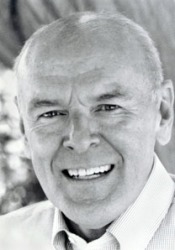 The first keynote presentation by Richard Peck, Newbery award-winning author of The Year Down Yonder, set a serious yet exciting tone for the conference. His unique voice extends beyond his books–when he speaks, he feels as big as a Shakesperean actor, filling the room, enunciating, using his entire body. (It was no surprise to learn that he belongs to a group of authors known as the “Authors Readers Theatre“ who travel the country performing each other’s works.) Charming, witty, it is impossible not to be drawn in by Mr. Peck’s dynamic presence. The first keynote presentation by Richard Peck, Newbery award-winning author of The Year Down Yonder, set a serious yet exciting tone for the conference. His unique voice extends beyond his books–when he speaks, he feels as big as a Shakesperean actor, filling the room, enunciating, using his entire body. (It was no surprise to learn that he belongs to a group of authors known as the “Authors Readers Theatre“ who travel the country performing each other’s works.) Charming, witty, it is impossible not to be drawn in by Mr. Peck’s dynamic presence.
“I am a writer because of two boys on a raft,” he began, noting his love of Mark Twain. ”Writers are readers first. Nobody but a reader ever became a writer. Read 1,000 books before you can write one.”
Mr. Peck encouraged attendees to look at other voices in order to find their own. And what does he think about “write what you know?” Rubbish. ”A story is something that never happened to the author,” he said. ”I assure you that J.K. Rowling never attended Hogwarts. Beatrix Potter was never a rabbit.”
A writer’s job is to add hope to reality. A story is always about change, and change is animated by epiphany. In his master class on Saturday, Mr. Peck explained epiphany further. When he asked middle school students to define ephiphany, an 8th grade boy said, “Epiphany is when everything changes and you can’t go back.” Mr. Peck thought that was the finest definition he had ever heard. The teacher informed Mr. Peck that the boy had lost his father, and his mother before that. That boy has been overdosed on reality. Now he needs hope.
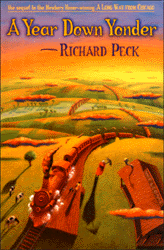 “A lot of fiction is about remembering better days.” The elder characters in Mr. Peck’s books are often patterned after the old men who frequented his father’s filling station in the 1930’s and 40’s. He recalls their conversations and makes “rough music out of real speech.” You can write in the voice of a young character, but have that young person know old people. Children want adults to be strong, but they often can’t find them. “A lot of fiction is about remembering better days.” The elder characters in Mr. Peck’s books are often patterned after the old men who frequented his father’s filling station in the 1930’s and 40’s. He recalls their conversations and makes “rough music out of real speech.” You can write in the voice of a young character, but have that young person know old people. Children want adults to be strong, but they often can’t find them.
Years ago, the books in his school library were kept under glass and you had to find the teacher for a key. “Consider that metaphor,” he said. “The teacher has the key.” Book are still as precious, but it is up to the writer to make them so. “You can teach children or fear the parent, but you can’t do both. We are the last literature teachers left because we can’t be fired. We’re unemployed!”
Every week Mr. Peck visits the book store and spends an hour perusing first lines. “We live in the age of the sound byte, so you have to ‘byte’ them out front.” He recited the first line of Charlotte’s Web to remind us of its power: “Where’s Papa going with that axe?” Six words on one line ignite the imagination. And then he gave a fine example of voice with M.T. Anderson’s Feed: “We went to the moon to have fun but the moon turned out to completely suck.”
He always travels with a book from the past and a new book. The book from the past reminds him that we’re all links in a chain, while the new title keeps him tuned to what’s coming next. “If we don’t know what publishers are releasing this year, how will we get on next year’s list?” He’s reading Laurie Halse Anderson’s Wintergirls, “the greatest argument for writing in first person. It skates too near to the truth.”
Mr. Peck concluded by reminding us that “a story is always a question, never an answer. We can ask the questions that no one else will ask.” Story is the most important gift we can give our youth. Think about that 8th grade boy. “Story might be the companion that a child needs.”
     
 "Who's doing all this talking?" "Who's doing all this talking?" "A real old, humped-over lady with buck teeth," Mary Alice said. "Cross-eyed? Grandma said. "That'd be Effie Wilcox. You think she's ugly now, you should have seen her as a girl. And she'd talk you to death. Her tongue's attached in the middle and flaps at both ends." Grandma was over by the screen door for a breath of air. "They said he'd notched his gun in six places," I said, pushing my luck. "They said the notches were either for banks he'd robbed or for sheriffs he'd shot." "Was that Effie again? Never trust an ugly woman. She's got a grudge against the world," said Grandma, who was no oil painting herself.
Overview: Joey Dowdel and his sister Mary Alice are first shipped off to visit their Grandma Dowdel in the summer of 1929. Being city kids from Chicago, they are none too pleased to be packed off to the boonies for a visit with a grandmother they hadn't seen since they were "tykes."
But Grandma Dowdel is no ordinary Grandma, and these two kids learn to always expect the unexpected. This town they first saw as sleepy and dull transformed in their eyes all through helping Grandma carry out her plans. She squeezes off a couple of rounds from her shotgun - right in her own living room. She teaches a family of bullies a lesson they won't soon forget. She strong-arms a banker into returning something rightfully belonging to someone else - and demands a few bucks for the grandkids for good measure.
Over the years, and beneath that steely exterior, Joey and Mary Alice start to see a whole new and surprising side to Grandma Dowdel. And they begin to look forward to each summer adventure, always wondering: what will she be up to next?
For Teachers and Librarians: A Long Way from Chicago is a novel broken up into eight short stories - one for each summer Joey and his sister spent a week with Grandma Dowdel. Joey tells the stories as he remembers them many years later. It is full of out loud laughs, poignant moments, bittersweet memories, and complicated relationships. Here is a novel you will relish reading out loud as much as your students relish hearing it.
Kids who struggle through full-length novels will enjoy this book's format, being able to read it in small chunks that each are a story in and of themselves. It may even encourage them to try longer works, once they find how fun this book is to read.
You will find much to work with here from a curriculum standpoint. The book is set from 1929 through 1942, and touches on life during the Great Depression, rural life in Illinois, Chicago gangsters, the World Wars, economics, human nature, relationships, community politics... Where will you choose to use this book? With so many ways to go, you really can't go wrong in using A Long Way from Chicago to supplement your lessons - or in wrapping your lessons around reading the book. For Parents, Grandparents and Caregivers: Grandparents and Great-Grandparents may find themselves reliving memories of their own while reading this with their kiddos. Parents will like the life lessons Joey and Mary Alice learn from their eccentric but principled grandmother. It is a lot of fun to read, so don't be surprised when they snicker and laugh out loud while curled up on the couch with it.
Written in short-story-collection format, this book may encourage your more reluctant readers to stick with it. Maybe it will even inspire them to pick up other books. If they like A Long Way from Chicago, they will be happy to know there is a sequel: A Year Down Yonder, that continues to tell of Grandma Dowdel and the hilarious situations she orchestrates.
For the Kids: Laugh out loud funny! Totally. You will seriously wish you had a grandma like Grandma Dowdel. She bakes a mean gooseberry pie, but isn't afraid to squeeze off a few rounds of her shotgun when necessary. She gives the bullies what for, but they don't even know what (or who) hit them. She's rough around the edges, but she gets what she believes is right, and soon Joey and Mary Alice see how much she really does care about people. Even people they thought were her enemies. Pick up a copy of A Long Way from Chicago and see for yourself. You won't be disappointed.
For Everyone Else: A Long Way from Chicago is a novel marketed to older kids and young adults, but the rest of us will get a kick out of it, too. Senior citizens will be able to relate to the time period (1929-1942) and may even want to spin a few yarns about their own lives back then. Middle age adults will get a better sense of all that stuff they heard about as kids and read about in school.
Wrapping Up: Everyone will love Grandma Dowdel. She is truly one of a kind, and this is a book not to be missed.
Title: A Long Way from Chicago
Author: Richard Peck Pages: 176 Reading Level: Ages 8-12 Publisher and Date: Penguin Young Readers Group, October 2000 Edition: paperback Language: English Published In: United States Price: $6.99 ISBN-10: 0141303522 ISBN-13: 978-0141303529
 Richard Peck has this advice to young people hoping to be writers: "get to know people who don't conform to the group" (from the Carol Hurst article referenced below) - a common theme in many of his own titles. Richard Peck has this advice to young people hoping to be writers: "get to know people who don't conform to the group" (from the Carol Hurst article referenced below) - a common theme in many of his own titles.
Mr. Peck writes middle grade through young adult novels, but he did not start out as a writer. He earned his bachelor's degree in English from DePauw University, spending his junior year abroad at the University of Exeter. Drafted into the US Army after college, he spent two years in Stuttgart, Germany.
Upon completion of his master's degree from Southern Illinois University in 1959, he taught junior high and high school English. However, he didn't like dealing with the behavior issues and other problems, so he left teaching in 1971 to write, using his experiences in teaching as material. His first novel, Don't Look and It Won't Hurt, was published by Holt in 1972.
He says of that time in his life:
"Ironically, it was my students who taught me to be a writer, though I was hired to teach them."
Richard Peck has written more than 32 books from middle grade through young adult. He writes in a wide variety of genres, among them: horror, mystery, occult, social commentary, historical, and realism. He types all his books exclusively on an electric typewriter, explaining in a 2003 interview with Publisher's Weekly that, "it has to be a book from the first day."
He has received numerous honors and awards, including a Newbery Honor and a National Book Award nomination in 1999 for A Long Way From Chicago, and a Newbery Medal in 2001 for its sequel: A Year Down Yonder.
Richard Peck was born April 5, 1934 in Decatur, Illinois, where he also grew up. He currently lives in New York, splitting his time between writing and traveling.
In our latest podcast Roger brings us along for an evening in New York with Elizabeth Law (Vice President and Publisher, Egmont USA), Douglas Pocock (Executive Vice President, Egmont USA), and Newbery Medalist Richard Peck. After a lively discussion about what draws adults to read young adult books, Roger talks to Richard Peck about his current project (here's a hint: "I'm bring Grandma Dowdel back").

By: Rebecca,
on 3/5/2008
Blog: OUPblog
( Login to Add to MyJacketFlap)
JacketFlap tags:
A-Featured, A-Editor's Picks, Media, Economics, Politics, Current Events, winner, election, Media, russia, soviet, putin, medvedev, marshall, goldman, exporter, Finance, World History, medvedev, putin, russia, marshall, A-Featured, A-Editor's Picks, World History, Finance, goldman, soviet, exporter, Add a tag
Marhsall Goldman is a Professor of Economics Emeritus at Wellesley College and Senior Scholar at the Davis Center for Russian Studies at Harvard University. In his forthcoming book, Petrostate: Putin, Power, and the New Russia , Goldman chronicles Russia’s dramatic reemergence on the world stage, illuminating the key reason for its rebirth: the use of its ever-expanding energy wealth to reassert its traditional great power ambitions. In the article below Goldman reflects on Medvedev’s recent victory in the Russian elections and on what it means for Russia.
Dmitri Medvedev’s election (or more accurately, selection) as president of Russia was not much of a cliffhanger. By eliminating any viable contender, his patron, Vladimir Putin did all he could to ensure his protégé’s election. For many Russians, there was little point in even bothering to show up at the polling station–everything had been decided in advance. Except for Medvedev, no other candidate (or even a potential candidate) was allowed meaningful access to TV, much less campaign funding. Large public rallies were restricted, if not banned outright. (more…)
Share This
View Next 25 Posts
|



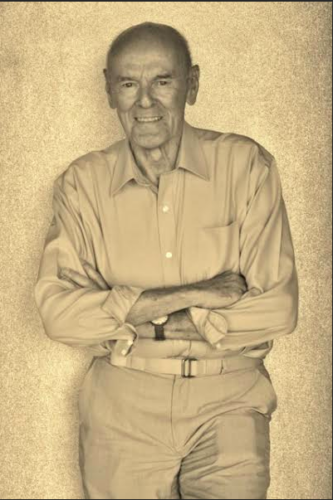
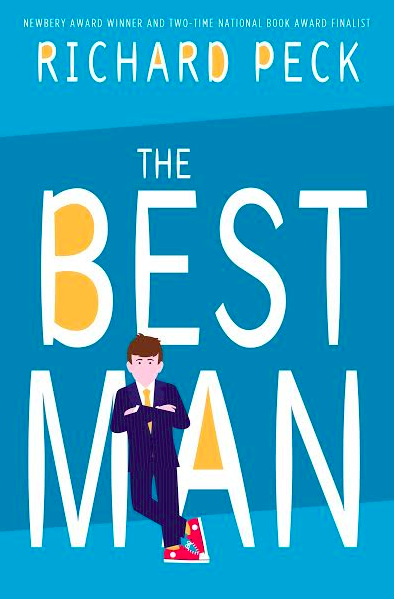



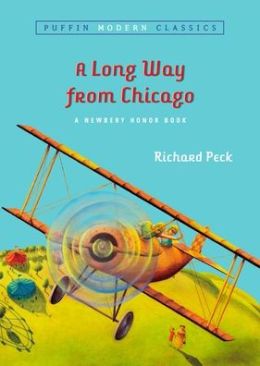
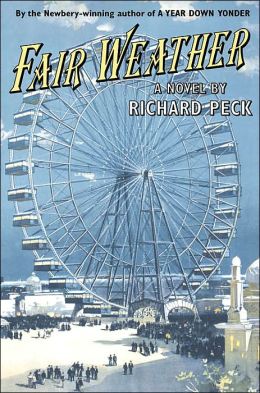







































 The first keynote presentation by Richard Peck, Newbery award-winning author of The Year Down Yonder, set a serious yet exciting tone for the conference. His unique voice extends beyond his books–when he speaks, he feels as big as a Shakesperean actor, filling the room, enunciating, using his entire body. (It was no surprise to learn that he belongs to a group of authors known as the “
The first keynote presentation by Richard Peck, Newbery award-winning author of The Year Down Yonder, set a serious yet exciting tone for the conference. His unique voice extends beyond his books–when he speaks, he feels as big as a Shakesperean actor, filling the room, enunciating, using his entire body. (It was no surprise to learn that he belongs to a group of authors known as the “ “A lot of fiction is about remembering better days.” The elder characters in Mr. Peck’s books are often patterned after the old men who frequented his father’s filling station in the 1930’s and 40’s. He recalls their conversations and makes “rough music out of real speech.” You can write in the voice of a young character, but have that young person know old people. Children want adults to be strong, but they often can’t find them.
“A lot of fiction is about remembering better days.” The elder characters in Mr. Peck’s books are often patterned after the old men who frequented his father’s filling station in the 1930’s and 40’s. He recalls their conversations and makes “rough music out of real speech.” You can write in the voice of a young character, but have that young person know old people. Children want adults to be strong, but they often can’t find them.


Finally one of my top 10 books made the list. I was getting nervous! This book is so bittersweet for me – Grandma Dowell reminds me so much of my own grandmother. I savored every word of this book and was incredibly sad to finish it.
*Dowdel
I just listened to the audiobook–a great introduction to Grandma Dowdel (who wouldn’t want her as a relative?). A true classic. I can’t wait to read the sequel.
I know what you mean about hearing Peck speak. Last summer at the 40th SCBWI anniversary he was Keynote of Keynotes. Every sentence was a work of art.